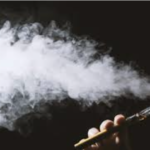Brutality is familiar territory in professional hockey. In fact, it’s an expected part of the game. But now we’re learning that humiliation, cruelty and abuse have made their way into the sport as well. And worse, we’re starting to see the impact of this degradation in a sport much revered for its moral values.
Calgary Flames head coach Bill Peters is fired for using the N-word toward player AkimAliu because he didn’t like the players choice of music. That was the final straw in a career known for kicking and punching players, according to reports from many players in positions to know, including Rod Brind’Amour, former player and highly respected NHL coach.
Toronto Maple Leafs head coach Mike Babcock is fired – ostensibly because of a poor start to the season and a 5 game losing streak. Once the worst kept secret in the NHL, now the truth comes out: Players under Babcock increasingly hated playing for him. His cruel and abusive treatment finally turned talented players into a losing team.
Babcock bullied and humiliated a then 18-year-old rookie, Mitch Marner, telling him to “make a list of your laziest teammates “, which Babcock then would share with the players. This is a pattern with Babcock, who chooses favorites in the locker room and then pits them against those players he chooses to marginalize and dehumanize. With disdain, contempt, and cruelty taking many forms, he goes after these players, all in the name of improved performance.
Babcock’s players hated playing for him, often citing hockey-related reasons like ice time and harsh media comments. But more often, treatment of players and of veterans like Mike Modano, and Jason Spezza, were listed as reasons for his players discomfort.
Recently it was revealed that Johan Franzen suffered the public humiliation that only Babcock can deliver, during a game on a bench in front of his teammates. The man who was affectionately called “The Mule“was fighting concussions at the time and his game had slipped. According to players close to Franzen, Babcock “broke him“ and in fact caused a nervous breakdown by choosing to go after him in his weakened state . Since this has gone public, Franzen has stated “(Babcock) is the worst person I’ve ever met “. Hockey legend Chris Chelios has confirmed similar reports of life with Babcock. Does it surprise you to learn that Bill Peters was Mike Babcock’s assistant with the Detroit Red Wings, just prior to their massive decline?
What are we witnessing?
This is yet another societal example of authoritarian privilege, narcissism and power over weaker, dependent groups that manifests as abuse, cruelty and dehumanization. I believe the psychological profile that underlies these coaches’ behavior probably runs very similar to that of Harvey Weinstein, Jeffrey Epstein, and many others who have abused their influence and outsized authority to dehumanize others. In both cases, these narcissists prey upon those who are vulnerable and dependent on them, lured in by the seductive promise of developing their talent.
Lost in all of this is the purpose of a hockey coach. It is, of course, ultimately to win and to fill seats for the fans and owners. But – as the game is getting younger – the coaches are put in charge of the development of vulnerable young men. Pro teams often have 10 or more players under age 24. These young men leave home as teenagers and sacrifice the security, protection and guidance of their parents in their most vulnerable years. While young players are getting more and more skilled, they are not given protection and support to develop their concomitant life skills. And so, they are vulnerable to abusive authority figures and the deep trauma this can create. This trauma will manifest itself emotionally, mentally and physiologically in myriad ways, including anxiety, self doubt and low self esteem. Transitions will be particularly stressful, as they rekindle the performance anxiety rooted by these abusive experiences.
What does a player need?
He needs the safety and security of a team that makes him feel like he is part of the family with teaching, challenging, and training integrated into life. The values that are instilled at this time must include a relentless drive for improvement, the discipline for deep practice, and a courageous willingness to confront one’s mistakes in order to conquer them. It is the mistake, or the lack of skill, that needs correcting, not the player that needs to be broken down.
A coach’s tasks are multiple and complex, for the coach must stand in, and create a culture that stands in, for these missing parents, while developing both their physical and life skills. Only then, in a supportive environment, can they successfully be challenged and pushed past what they thought were their limits. What does not work is to break down a player with humiliation, degradation, and violence. Gone are the days of “breaking a kid down as a pathway to excellence “. This once-popular, now archaic approach has even been left behind by our military special forces fighting overseas.
Some will say that this sounds like an argument for coaches to be soft. Of course not. In fact, it is much harder and demands courage for a coach to take responsibility for a young man’s brain that continues in its developmental phase through age 25. A coach’s task is to maintain respect and caring, to inculcate them with values, to instill self-pride against both internal and external adversity, and to achieve resilience that turns into something transformative.
Are all coaches hidden Babcocks or Peters?
Fortunately not. [Full disclosure, my son is a Pittsburgh Penguins prospect, currently playing in the AHL]. He, like many others I have come across,has had the good fortune of having coaches, mentors, strength and conditioning coaches, and trainers that demonstrated respect, if not love, toward him. In fact, I know firsthand that the Penguins’ culture takes these issues very seriously.
We need to take responsibility for the developmental, emotional and physical needs of our young men growing up in athletic arenas. What a coach does to these boys literally changes the firing of the neurons in their brains, and therefore will be responsible for the way their brains are wired. How they treat these young men has permanent effect on their emotional, social and athletic development.
What I am calling for, during this time of “reckoning in the NHL”, is to use this as an opportunity. An opportunity to educate our coaches on the developing minds and needs of our young men. An opportunity to task coaches to understand, educate and appreciate mental health issues and how to develop optimal mental health in their athletes. This will lead to increased physical performance on the ice as well. Our goal should be strong healthy young men not hindered by internal limitations and emotional scars.
We must recognize that coaches have the power to traumatize – or conversely – to help develop our athletes into winning human beings.Hockey remains an amazing arena not just to watch the world’s greatest game, but to develop a legion of good young men.
Dr. Miletic is a sports neuropsychiatrist who has been involved in studying and treating athletes for 40 years, since he was training on the Canadian Olympic Weightlifting team.








